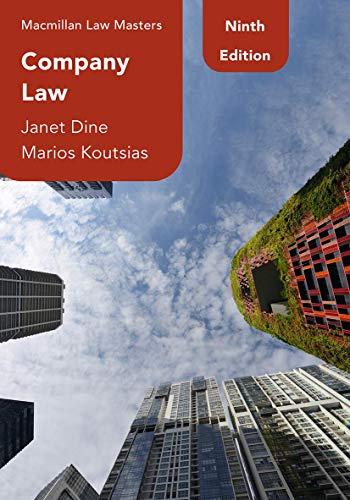Question
A promise or committment usually is: Question 1 options: implied express referring to something in the past both choice 1 and 2 Question 2 (3
A promise or committment usually is:
Question 1 options:
| implied | |
| express | |
| referring to something in the past | |
| both choice 1 and 2 |
Question 2 (3 points)
The law uses a subjective test to determine if the parties created a contract.
Question 2 options:
| True | |
| False |
Question 3 (3 points)
The Uniform Commercial Code is applied to all Contracts.
Question 3 options:
| True | |
| False |
Question 4 (3 points)
Saved
The UCC is not a statute. It is considered a secondary authority.
Question 4 options:
| True | |
| False |
Question 5 (3 points)
A judge who disagrees with the reasoning of the majority of the judges but agrees with the result will write a
Question 5 options:
| majority opinion | |
| concurring opinion | |
| plurality opinion | |
| dissenting opinion |
Question 6 (3 points)
The offeror creates which option(s) for the offeree...
Question 6 options:
| accept the offer | |
| reject the offer | |
| make a counteroffer | |
| All of the above. |
Question 7 (3 points)
The principle that a judicial decision creates a rule of law, binding upon later cases with similar facts, is known as the doctrine of precedent. (in latin, Stare Decisis).
Question 7 options:
| True | |
| False |
Question 8 (3 points)
Under common law when the acceptance must correspond exactly with the offer this is called the ________ ________ rule.
Question 8 options:
| mirror image rule | |
| ribbon matching rule | |
| none of the above | |
| both choices 1 and 2 |
Question 9 (3 points)
An option must contain its own consideration, separate from the underlying exchange.
Question 9 options:
| True | |
| False |
Question 10 (3 points)
The doctrine of promissory estoppel serves as substitute for consideration in creating an enforcable option.
Question 10 options:
| True | |
| False |
Question 11 (3 points)
Consideration is something of legal value that must be given by each party in exchange for what was promised or given by the other.
Question 11 options:
| True | |
| False |
Question 12 (3 points)
Under the Constitution, which branch negotiates treaties?
Question 12 options:
| legislative | |
| executive | |
| judicial | |
| the State Department |
Question 13 (3 points)
A prior detriment or a detriment suffered before a promise or contract was made is considered valid consideration.
Question 13 options:
| True | |
| False |
Question 14 (3 points)
A Quasi-Contract is a contract implied by law.
Question 14 options:
| True | |
| False |
Question 15 (3 points)
The four corners approach to interpreting a contract means that the court will look for meaning outside the four corners and look for extrinsic evidence of meaning.
Question 15 options:
| True | |
| False |
Step by Step Solution
There are 3 Steps involved in it
Step: 1

Get Instant Access to Expert-Tailored Solutions
See step-by-step solutions with expert insights and AI powered tools for academic success
Step: 2

Step: 3

Ace Your Homework with AI
Get the answers you need in no time with our AI-driven, step-by-step assistance
Get Started


